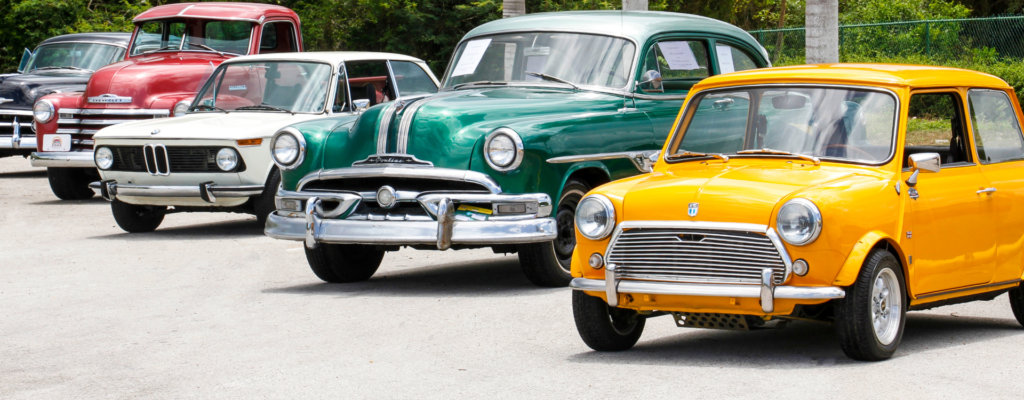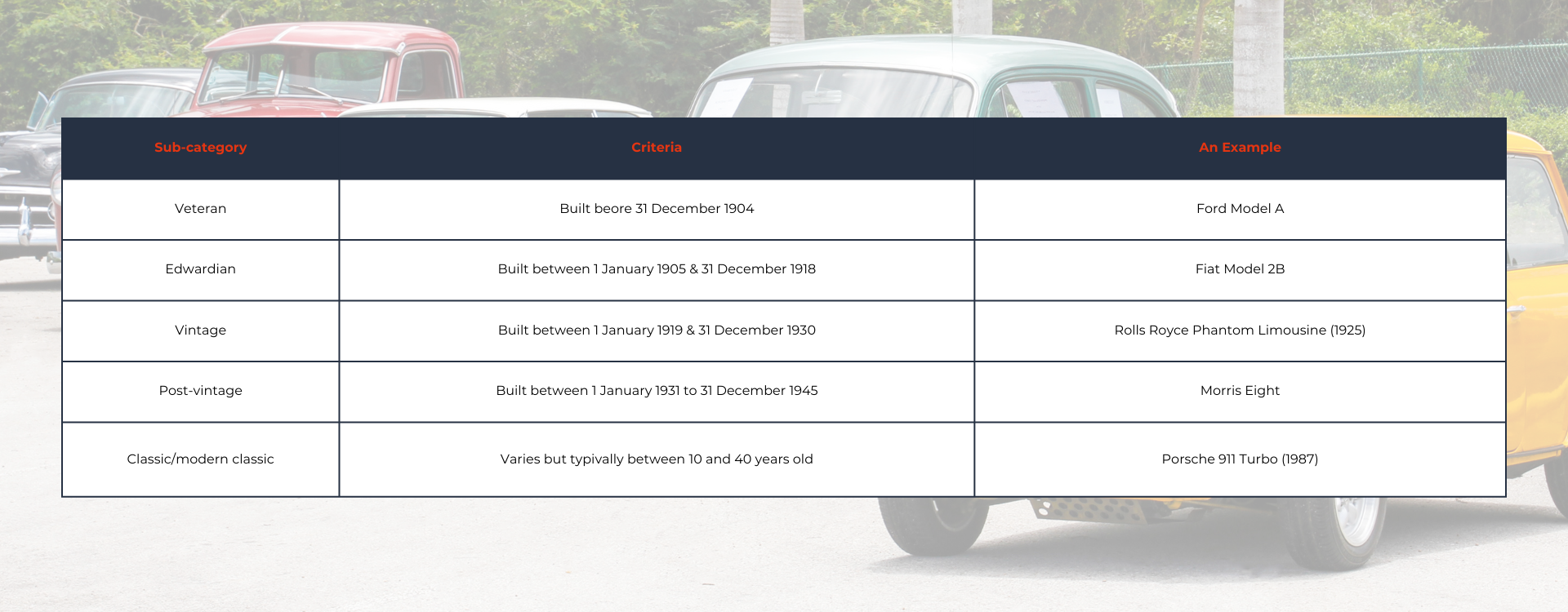How a car becomes a classic and why you need specialist insurance

29 May How a car becomes a classic and why you need specialist insurance
Posted at 09:58h
in Premier Locations
Classic car specialists and enthusiasts may debate on what exactly they define as a classic car, but there are ‘official’ classes for different purposes. The DVLA and HMRC each have their own criteria and guidance around how they would declare a car a collectible.
How a car becomes a classic
As mentioned above, there are two official definitions of what makes a car a classic. One is for car tax purposes (DVLA)1 and another is used by HMRC2 when looking to sell your classic (to calculate tax). As well as this, insurance providers may have their own take when it comes to covering your car.
For the DVLA (vehicle tax), officially known as Vehicle Excise Duty (VED); defines a classic car as:
Built before 1 January 1983
First registered for car tax before 8 January 1983 (to be used if you don’t know when your vehicle was made).
There are limitations though. If you meet the age requirements but use your classic car for trade and/or business purposes (hire and rewards for example), it will not be exempt from tax.
HMRC define a classic as:
Aged over 15 years
Worth £15,000 or more
Typically, when you come to sell your classic car, it will be exempt from capital gains tax (CGT). As the same with the DVLA, there are limitations. If you’re buying and selling classic cars with the intention of making money (profit), then this would be classed as classic car trading. This means having to pay corporation tax, the amount dependent on the level of profits. This could be 19% or 25%.
Classification types
As you’ve read, the DVLA and HMRC have their own broad criteria of what makes a car a classic. Classic car experts have further classified vehicles into sub-categories. These categories can help with valuations and are widely used by insurers3.

Why it’s important to seek specialist insurance for your classic car
Classic car insurance can widely differentiate from ‘typical’ car insurance. There are various reasons to explore, but in a nutshell – a specialist provider will be able to tailor the options to your specific vehicle and can take vehicle condition more into account4. For instance, there could be special cover that suits your frequency of driving (typically lower for classics) and your classic car may need more off-road protection features (rusting, etc.). Furthermore, if your classic car is damaged on the road, parts could be harder to find than more modern parts.
Often when insuring your classic car, insurers agree a valuation with you – whereas ‘typical’ car insurance generally covers market value as of the date of an insurance claim. If you know someone with a classic car, they may refer to having one as a lifestyle. Classic car insurance more often than not will have Euro cover, this means being covered in a European country as standard5.
If you’re looking for specialists to cover your classic car, get in touch with our team today.
1Historic (classic) vehicles: MOT and vehicle tax: Eligibility – GOV.UK (www.gov.uk)
2EIM24400 – Car benefit calculation Steps 1-4, classic car: definition – HMRC internal manual – GOV.UK (www.gov.uk)
3 https://www.independent.co.uk/advisor/car-insurance/classic-car-age#:~:text=HMRC%20classic%20car%20definition&text=Your%20car%20is%20classed%20as%20classic%20if%3A,worth%20%C2%A315%2C000%20or%20more
4https://www.which.co.uk/money/insurance/car-insurance/classic-car-insurance-explained-aTdtr6U2MP38
5https://www.which.co.uk/money/insurance/car-insurance/classic-car-insurance-explained-aTdtr6U2MP38







